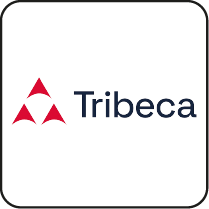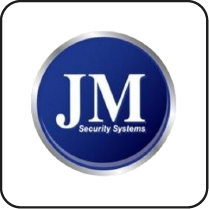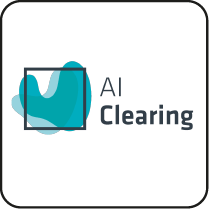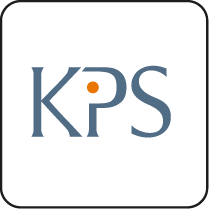What is ISO 27001:2022 Certification?
ISO 27001:2022 is the globally recognised standard for Information Security Management Systems (ISMS). It integrates people, processes, and technology to ensure the confidentiality, integrity, and availability of your organisation’s information.
Certification under this standard demonstrates a robust commitment to managing information security risks and helps organisations comply with regulatory frameworks such as GDPR.
ISO/IEC 27001 Certification – Simplified for Your Success
Achieving ISO 27001:2022 Certification is a crucial step toward safeguarding your organisation’s sensitive data, ensuring compliance with international standards, and building trust with your customers. Our platform streamlines the certification process, providing all the tools and resources needed to achieve compliance efficiently and effectively.
Why is ISO 27001:2022 Certification Important?
Certification is a valuable asset that provides several benefits for organisations, including:
1. Increased Trust and Credibility
ISO 27001 certification signals to clients, partners, and stakeholders that your organisation takes information security seriously. It demonstrates that your business has implemented best practices to protect sensitive data and comply with international security standards.
2. Improved Security Framework
An ISMS certified to ISO 27001:2022 systematically manages security risks by integrating organisational, technical, and physical controls. This proactive approach reduces vulnerabilities and enhances your overall security posture.
3. Regulatory Compliance
ISO 27001:2022 helps ensure compliance with legal requirements, such as GDPR and other industry-specific regulations. By aligning your ISMS with this standard, your organisation reduces the risk of fines and legal penalties associated with data breaches.
4. Business Growth and Competitive Advantage
Certification offers a competitive edge in both domestic and international markets. Many B2B clients and partners require ISO 27001 certification as a prerequisite for doing business, especially in sectors such as IT, healthcare, and finance.
5. Cost Savings and Risk Mitigation
By preventing data breaches and improving operational efficiency, ISO 27001 can reduce the costs associated with security incidents, non-compliance fines, and business disruptions.
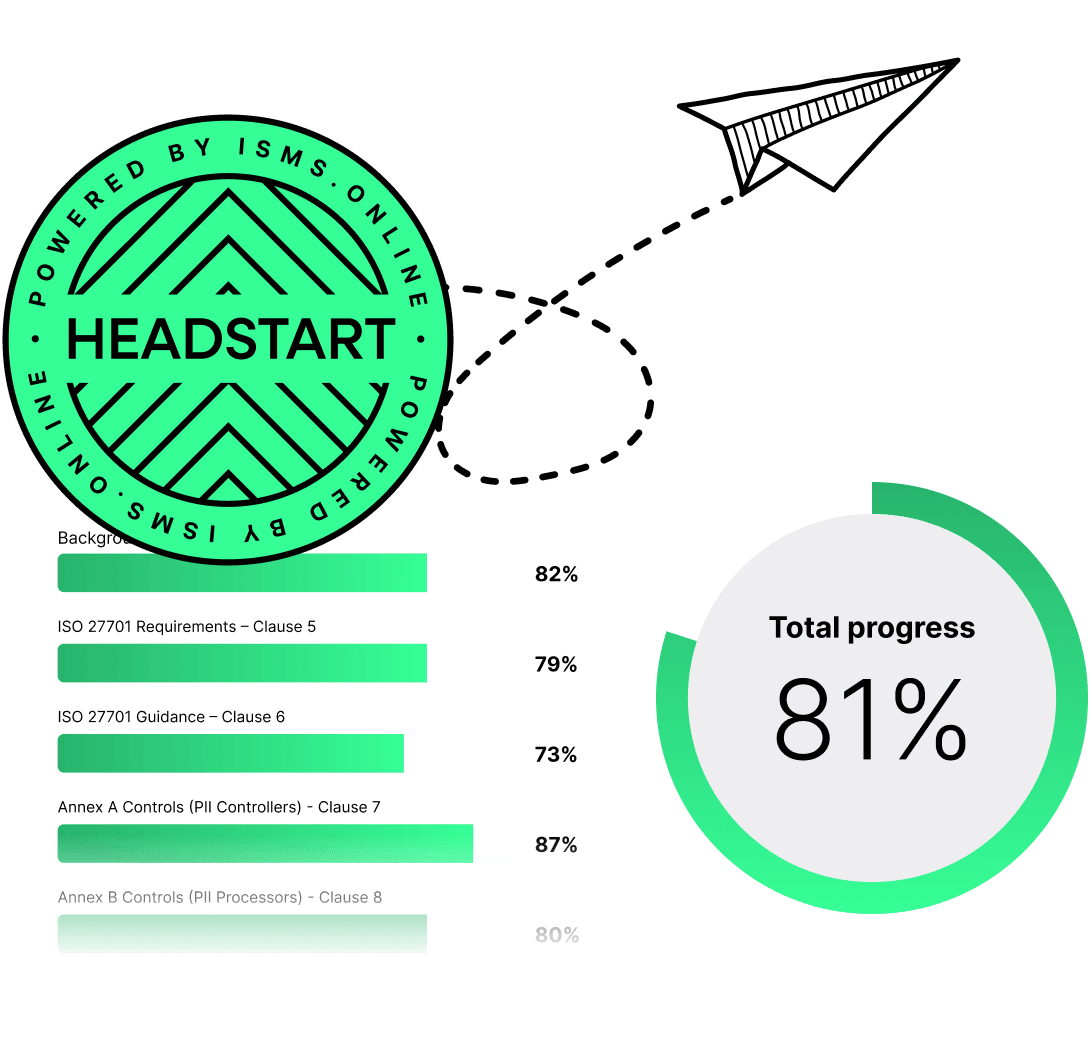
ISO 27001 made easy
An 81% Headstart from day one
We’ve done the hard work for you, giving you an 81% Headstart from the moment you log on. All you have to do is fill in the blanks.

How to Achieve ISO 27001:2022 Certification
Achieving certification involves a well-structured approach that includes the following steps:
1. Define the Scope of Your ISMS
Clearly identify the areas of your business covered by your ISMS. This should align with your business goals and include all relevant assets, processes, and stakeholders (ISO 27001:2022 Clause 4).
2. Conduct a Risk Assessment
Perform a thorough risk assessment to identify potential threats and vulnerabilities to your organisation’s information assets. Prioritise risks based on likelihood and impact, and develop a risk treatment plan that addresses these risks with appropriate security controls (ISO 27001:2022 Clause 6.1.2).
3. Implement Security Controls from Annex A
Apply tailored security controls to mitigate risks. Annex A of ISO 27001:2022 contains 93 controls covering areas like access management, incident response, and threat detection. These controls should be integrated into daily operations to ensure continuous protection.
4. Prepare for the Two-Stage Certification Audit
The certification process consists of two audits:
- Stage 1: Review of documentation to ensure all required processes and controls are in place.
- Stage 2: A more thorough evaluation of your ISMS implementation, where auditors will interview staff and assess real-world application of security controls.
5. Continuous Improvement
Certification is not a one-time event; it requires ongoing surveillance audits and updates to your ISMS. Regular reviews ensure your organisation adapts to emerging threats and maintains compliance over time.
Key Benefits of ISO 27001:2022 Certification
ISO 27001:2022 Certification brings wide-ranging benefits to all stakeholders:
For Your Business:
- Protect valuable data and intellectual property
- Enhance your reputation by demonstrating a commitment to security
- Gain a competitive advantage in B2B markets
- Attract new clients and retain existing customers through improved trust
For Your Staff:
- Increased confidence in organisational security
- Training opportunities to enhance security skills
- Clear policies and procedures that guide daily operations
- Pride in contributing to a secure and compliant business environment
For Your Customers:
- Trust in your ability to safeguard their data
- Reduced risk of breaches, ensuring continuity of service
- Lower onboarding costs for clients, particularly in industries that mandate ISO 27001 certification

Maintaining Your ISO 27001 Certification
Achieving ISO 27001:2022 certification is only the beginning of a continuous process to ensure your organisation’s information security remains robust and up-to-date. ISO 27001 certification is awarded for a three-year period, but maintaining it requires regular reviews, updates, and audits.
Ongoing Surveillance Audits
After the initial certification, your organisation will need to undergo regular surveillance audits, typically conducted annually. These audits assess whether your Information Security Management System (ISMS) continues to meet the requirements of ISO 27001:2022 and remains effective in managing information security risks.
Auditors will evaluate how well you are maintaining and improving your ISMS in response to evolving risks and changes in your business environment.
Internal Audits and Management Reviews
Your organisation should conduct internal audits at least annually to ensure compliance with the ISMS and identify any areas that need improvement. Regular management reviews are also necessary to ensure that top-level management is involved in evaluating the performance of the ISMS, making any required changes, and setting security objectives for the future.
Continuous Improvement
Maintaining certification is not about staying static; it requires continuous improvement of your ISMS.
As new threats emerge and technologies evolve, your security controls and policies should be updated to reflect the changing landscape. ISO 27001 encourages organisations to adopt a proactive approach to risk management, continually refining security measures to ensure ongoing compliance and protection.
Recertification Every Three Years
Every three years, your organisation will need to undergo a full recertification audit. This process is more comprehensive than the annual surveillance audits, requiring an in-depth review of your ISMS and ensuring it meets all the requirements of the ISO 27001:2022 standard.
Successfully passing this audit will renew your certification for another three-year period.
The Role of ISMS.online in Maintaining Certification
Our platform helps simplify the process of maintaining your ISO 27001 certification. With built-in tools for continuous monitoring, document management, and audit tracking, ISMS.online ensures your organisation is always ready for audits and stays compliant with the latest requirements.
Whether it’s internal audits, updating risk assessments, or managing policy changes, ISMS.online provides a structured and efficient approach to maintaining your certification.
By continuously monitoring and improving your ISMS, your organisation will not only maintain its certification but also strengthen its overall security posture, ensuring long-term success and resilience against new threats.

Free yourself from a mountain of spreadsheets
Embed, expand and scale your compliance, without the mess. IO gives you the resilience and confidence to grow securely.

How Many Companies Are ISO 27001 Certified?
ISO 27001 has become the most popular information security standard worldwide, with a growing number of organisations adopting it to protect their sensitive information and comply with international security standards. Since its inception, the number of companies certified to the ISO 27001 standard has steadily increased, reflecting its global importance.
As of recent reports, tens of thousands of organisations across various industries have achieved ISO 27001 certification. Since 2006, there has been a consistent rise in certifications, driven by growing awareness of the importance of information security and the need for compliance with data protection regulations like GDPR.
This widespread adoption underscores the trust that businesses, regulators, and customers place in ISO 27001 certification as a marker of robust security practices.
Below you can see the number of certificates since 2006:
| Year | ISO 27001 Certified Companies |
|---|---|
| 2006 | 5,797 |
| 2007 | 7,732 |
| 2008 | 9,246 |
| 2009 | 12,935 |
| 2010 | 15,626 |
| 2011 | 17,355 |
| 2012 | 19,620 |
| 2013 | 21,604 |
| 2014 | 23,005 |
| 2015 | 27,536 |
| 2016 | 39,501 |
| 2017 | 33,290 |
| 2018 | 36,362 |
| 2019 | 44,486 |
| 2020 | 58,687 |
| 2021 | 71,549 |
Source: The ISO Survey of Management System Standard Certifications
ISO 27001 Certification for Healthcare
Healthcare organisations manage vast amounts of sensitive personal data, including medical records, patient information, and billing details. In an era of increasing cyberattacks and stringent regulatory requirements, such as HIPAA in the U.S. and GDPR in Europe, ISO 27001:2022 certification offers a crucial framework for securing this data.
Why Healthcare Needs ISO 27001
Healthcare organisations face significant risks in protecting patient data and complying with privacy regulations. ISO 27001:2022 ensures that healthcare providers implement robust security controls, from encrypting patient information to managing access to electronic health records (EHRs). By obtaining certification, healthcare organisations can:
- Reduce data breach risks: ISO 27001’s focus on risk assessment helps healthcare entities identify vulnerabilities and implement strategies to mitigate them.
- Ensure compliance: Many countries have strict healthcare privacy regulations, and ISO 27001 certification supports alignment with these laws, reducing the risk of fines and legal consequences.
- Enhance patient trust: As healthcare data breaches rise, patients are increasingly concerned about how their information is handled. Certification demonstrates a commitment to safeguarding personal health data.
Benefits of ISO 27001 for Healthcare
- Enhanced data security for patient records
- Compliance with regulations like HIPAA and GDPR
- Reduction in data breaches and associated costs
- Greater trust from patients and healthcare partners
ISO 27001 Certification for Financial Services
The financial services industry, including banks, insurance companies, and investment firms, is highly targeted by cybercriminals due to the sensitive financial data they handle. ISO 27001:2022 certification offers a vital framework for protecting these assets while meeting both regulatory and customer expectations.
Why Financial Services Need ISO 27001
Financial services organisations face unique challenges in managing sensitive information, including credit card details, customer data, and confidential transaction records. With regulations such as PCI-DSS and GDPR in place, the need for effective information security measures is more critical than ever. ISO 27001:2022 provides financial institutions with:
- Improved risk management: By systematically identifying risks and implementing controls, financial services companies can better protect against cyber threats
- Regulatory compliance: ISO 27001 implementation supports compliance with global regulations, helping organisations meet the stringent demands of financial authorities
- Customer confidence: Trust is essential in the financial sector. ISO 27001 certification demonstrates to customers and partners that your organisation takes information security seriously
Benefits of ISO 27001 for Financial Services
- Stronger protection of financial data
- Compliance with regulatory frameworks like PCI-DSS
- Increased trust from clients and business partners
- Mitigated risks of costly data breaches

Manage all your compliance, all in one place
ISMS.online supports over 100 standards and regulations, giving you a single platform for all your compliance needs.

ISO 27001 Certification for Small Businesses
ISO 27001:2022 certification is not just for large enterprises; small businesses can also benefit significantly from achieving certification. In fact, with the increasing risk of cyberattacks and data breaches, small businesses are becoming more vulnerable, making information security a top priority. Certification offers a structured and scalable approach to managing security risks, regardless of your organisation’s size.
Why Small Businesses Need ISO 27001 Certification
Small businesses are often perceived as easier targets by cybercriminals because they may not have the same level of security controls as larger organisations. ISO 27001:2022 certification helps small businesses mitigate these risks by implementing a systematic approach to protecting sensitive data. Here’s why it’s especially valuable for small businesses:
- Building Trust and Credibility: Certification signals to clients, partners, and stakeholders that your business is committed to protecting information. This can be a key differentiator when competing for contracts, especially in industries that mandate security certifications.
- Compliance with Regulations: ISO 27001 certification helps small businesses comply with industry regulations and legal requirements, such as GDPR. Compliance is critical to avoiding fines and maintaining the trust of your customers.
- Cost-Effective Risk Management: Implementing ISO 27001 doesn’t have to be costly or resource-intensive for small businesses. The framework is flexible, allowing organisations to scale their ISMS based on their specific needs, risks, and resources. This makes it an efficient and affordable option for small businesses looking to enhance their security posture.
- Competitive Advantage: Many larger organisations require their suppliers and partners to get ISO 27001 certified. By achieving certification, small businesses can access new markets and business opportunities that would otherwise be out of reach.
How ISMS.online Supports Small Businesses
ISMS.online simplifies the certification process for small businesses by providing all the necessary tools and resources in one platform. From risk assessments to policy management, our platform offers a streamlined and cost-effective way to achieve and maintain ISO 27001 certification. With user-friendly interfaces and pre-configured templates, even businesses with limited IT resources can confidently manage their ISMS.
Benefits of ISO 27001 for Small Businesses
- Enhanced protection of sensitive customer data: By identifying and addressing vulnerabilities, small businesses can better protect their clients’ information.
- Increased trust and credibility: Certification demonstrates that your business takes security seriously, which can help attract new customers and retain existing ones.
- Compliance with industry regulations: Meeting legal requirements, such as GDPR, ensures that your business avoids costly penalties and maintains a strong reputation.
- Business growth: Certification can open doors to larger contracts and partnerships that require a commitment to information security.
For small businesses, ISO 27001 certification is a practical way to safeguard their data, comply with regulations, and build trust with stakeholders, all while maintaining a competitive edge in their industry.
How ISMS.online Can Simplify Your Certification Journey
Our platform provides all the tools your organisation needs to achieve and maintain ISO 27001:2022 certification, including:
- Risk Assessment Tools: Efficiently identify, evaluate, and manage information security risks.
- Policy Management: Manage and update security policies with built-in templates and version control.
- Audit Management: Track and prepare for internal and external audits with comprehensive documentation tools.
By streamlining these processes, ISMS.online helps you reduce time and costs associated with certification, making it easier to integrate ISO 27001 into your business strategy.
ISO 27001 Certification Frequently Asked Questions
Compliance means your organisation follows the principles of ISO 27001, but certification requires a third-party auditor to verify that you meet all the requirements outlined in the standard. Certification provides an external stamp of approval and often carries more weight in the market.
The timeline for certification can vary depending on the size and complexity of your organisation, but it generally takes between 6 to 12 months to implement the necessary controls and pass both stages of the audit.
Yes, even small businesses can benefit from ISO 27001 certification. Many industries require certification to handle sensitive data, and it helps establish trust with clients and partners, regardless of the organisation’s size.
Costs vary based on the scope and size of the organisation. Certification audit costs typically range from £1,000 to £5,000 for small to medium-sized businesses. The primary cost is usually the internal time and resources dedicated to implementing the ISMS.
ISO 27001 can be integrated with other standards like ISO 9001 (Quality Management) and ISO 14001 (Environmental Management) to create a comprehensive, unified management system. This integration helps streamline processes, improve efficiency, and ensure compliance across multiple domains.
Ready to Get Certified With ISMS.online?
With ISMS.online, you can simplify your ISO 27001:2022 certification process and achieve compliance with confidence. Our platform offers step-by-step guidance to help you through the certification journey. Get Started Today!
Book a demo and see how our platform can support your certification journey, from initial setup to final audit and beyond.
ISO 27001:2022 certification is a powerful tool for businesses that want to demonstrate their commitment to security, compliance, and risk management. By partnering with ISMS.online, your organisation can streamline the certification process and unlock new opportunities for growth.
Download our whitepaper
The return on investment from an ISO 27001 ISMS can be more fully explored in our whitepaper; Planning the Business Case for an ISMS.
The whitepaper further explores the opportunities and threats, benefits and consequences, and also offers up a range of tools and exercises to help.
Download whitepaper